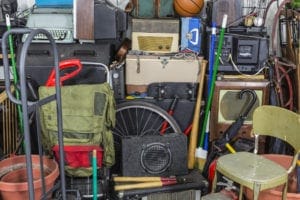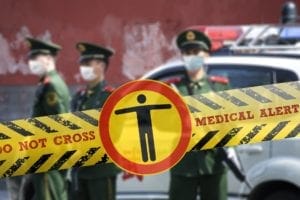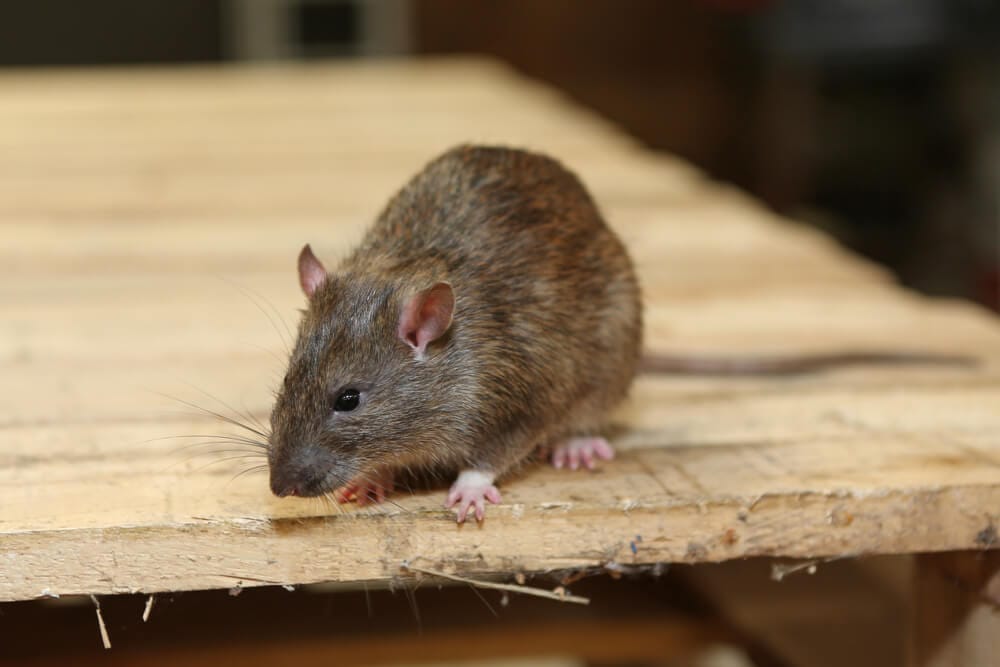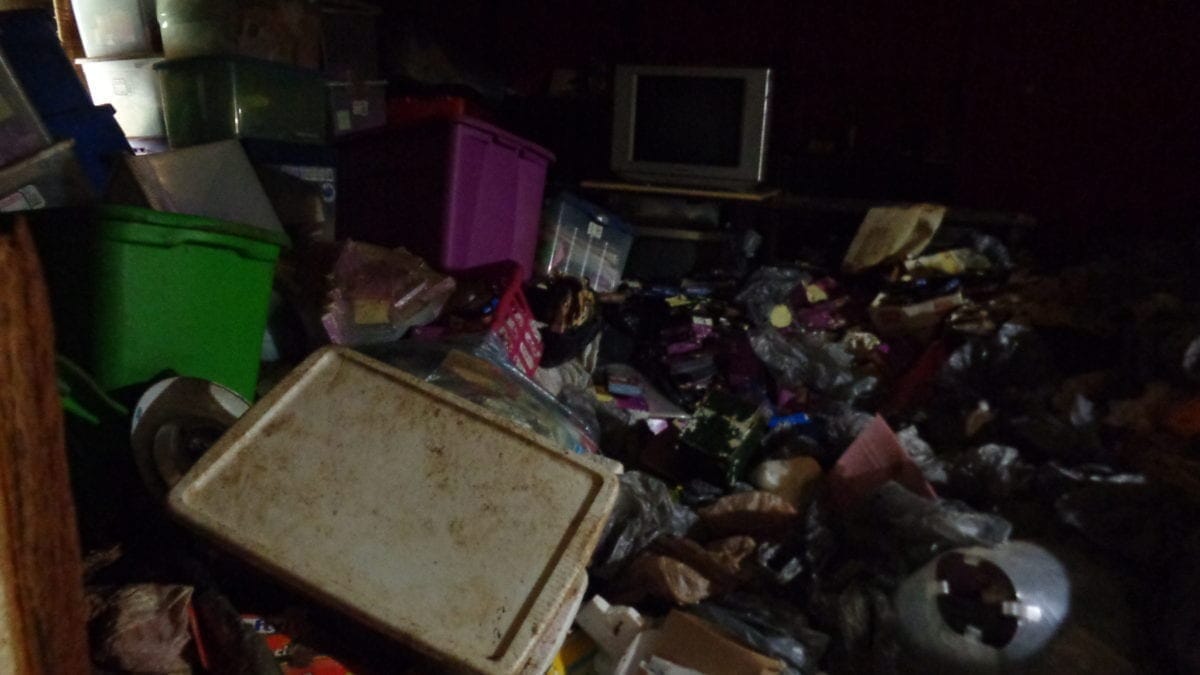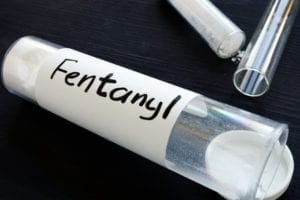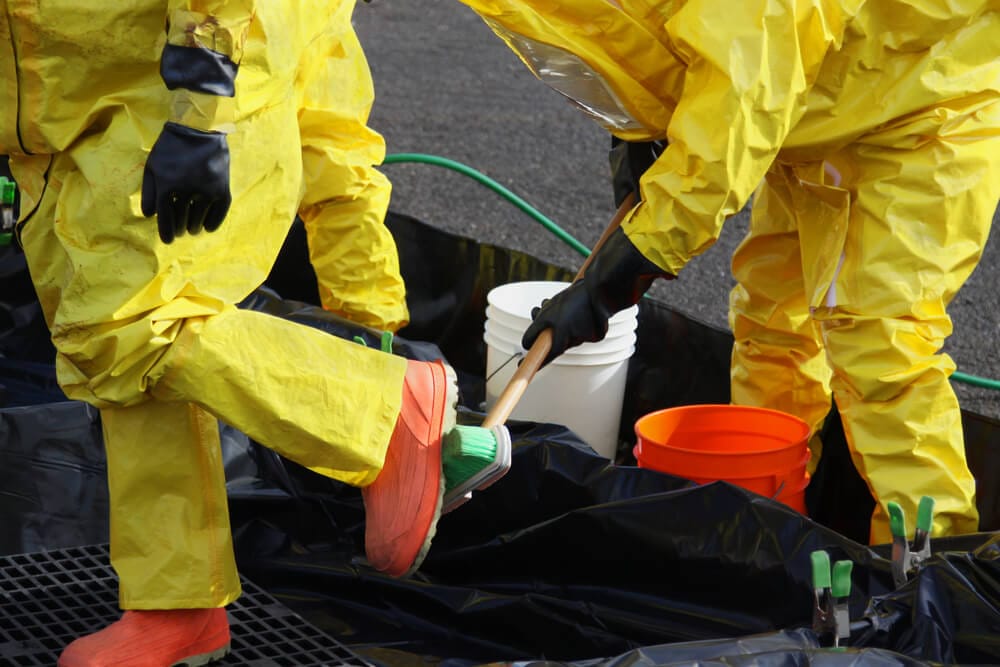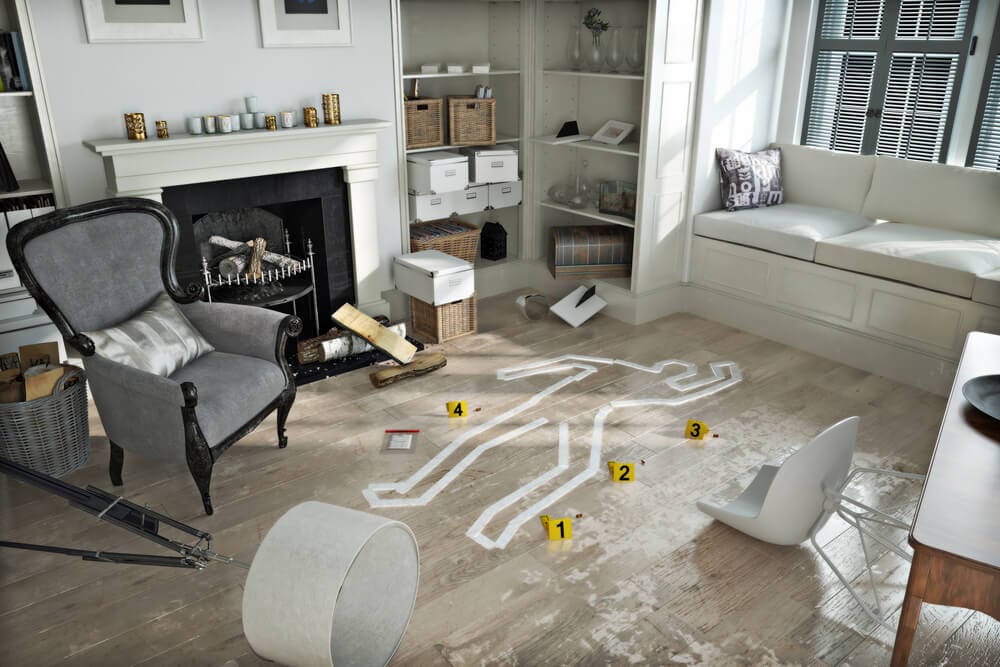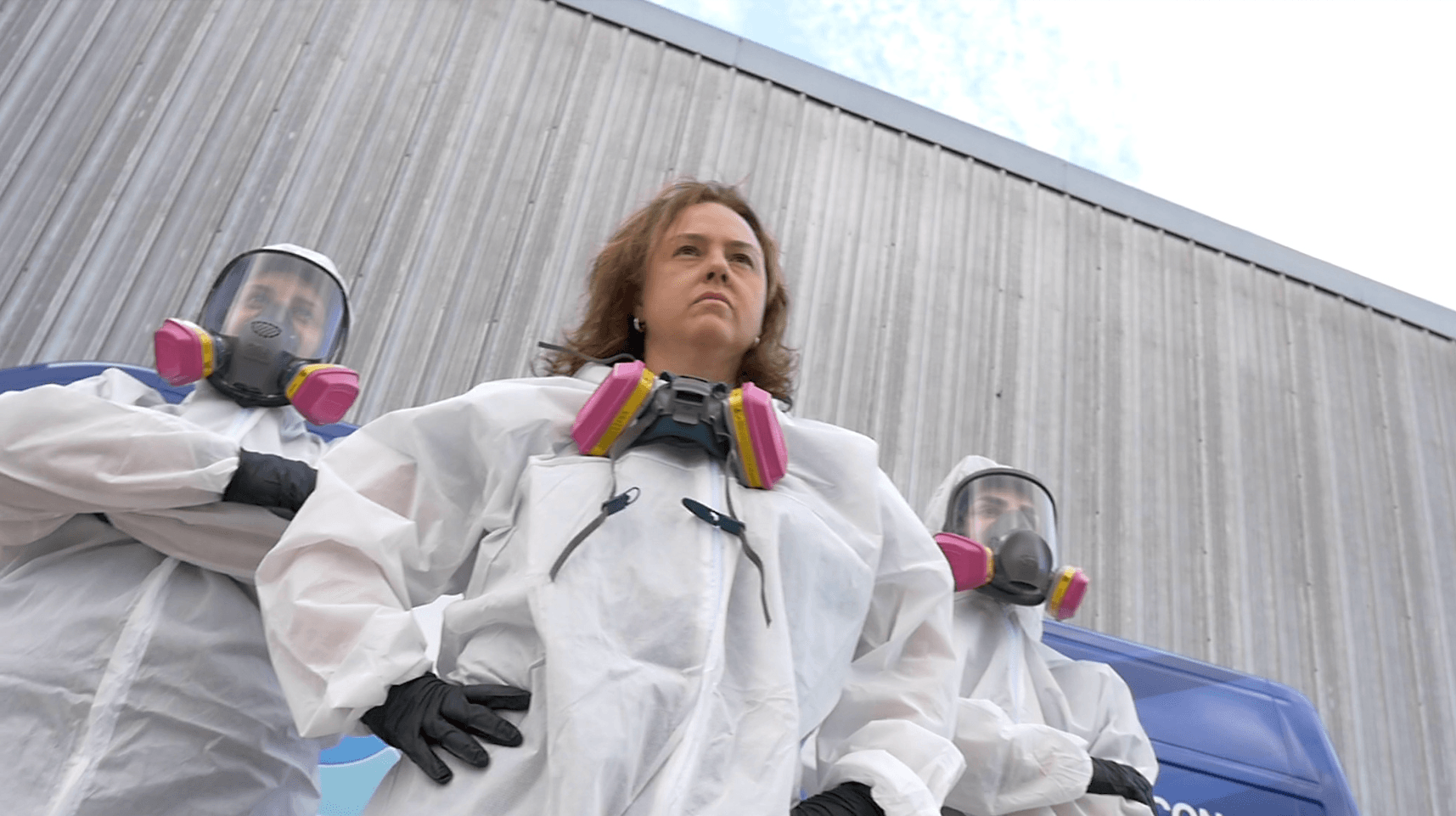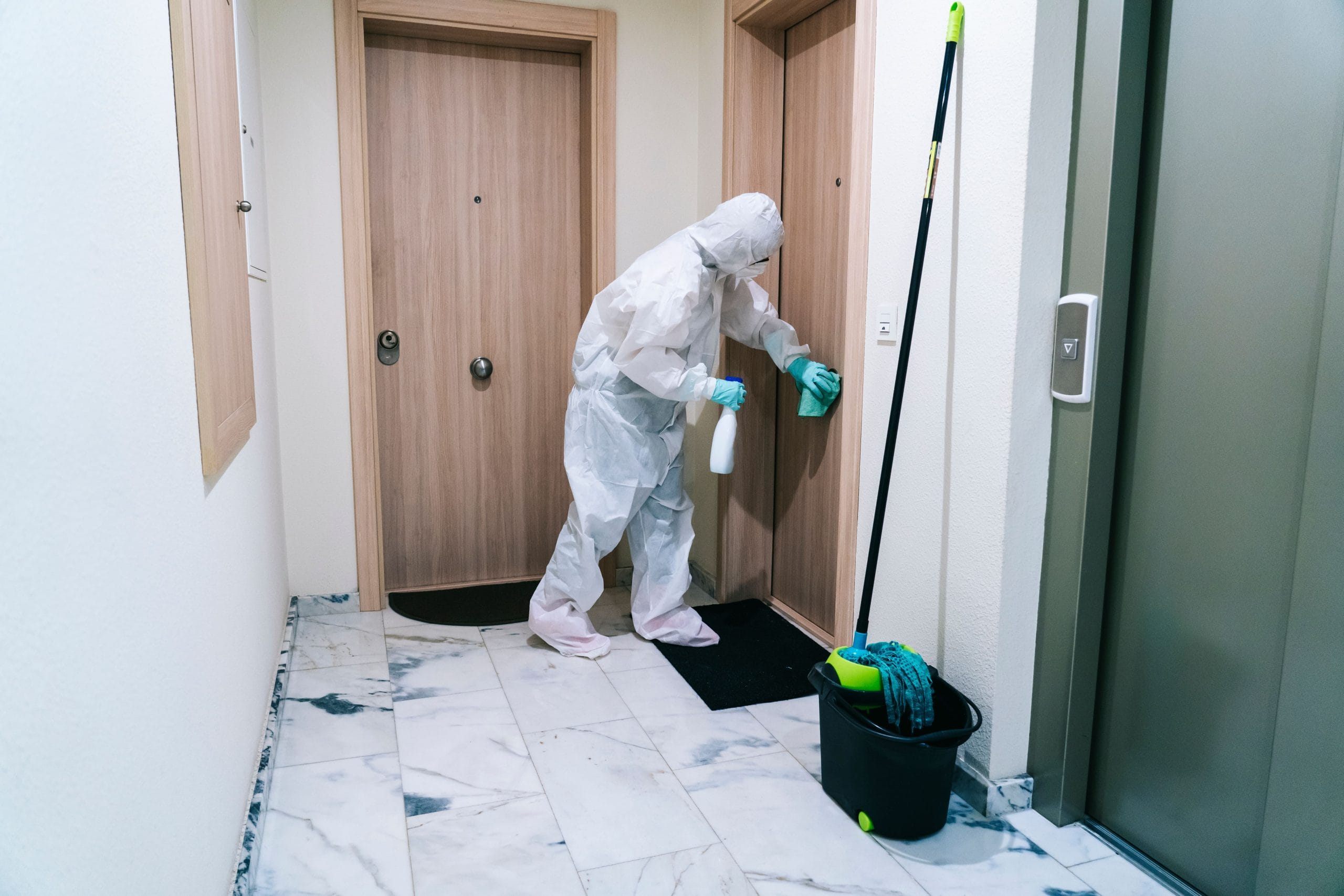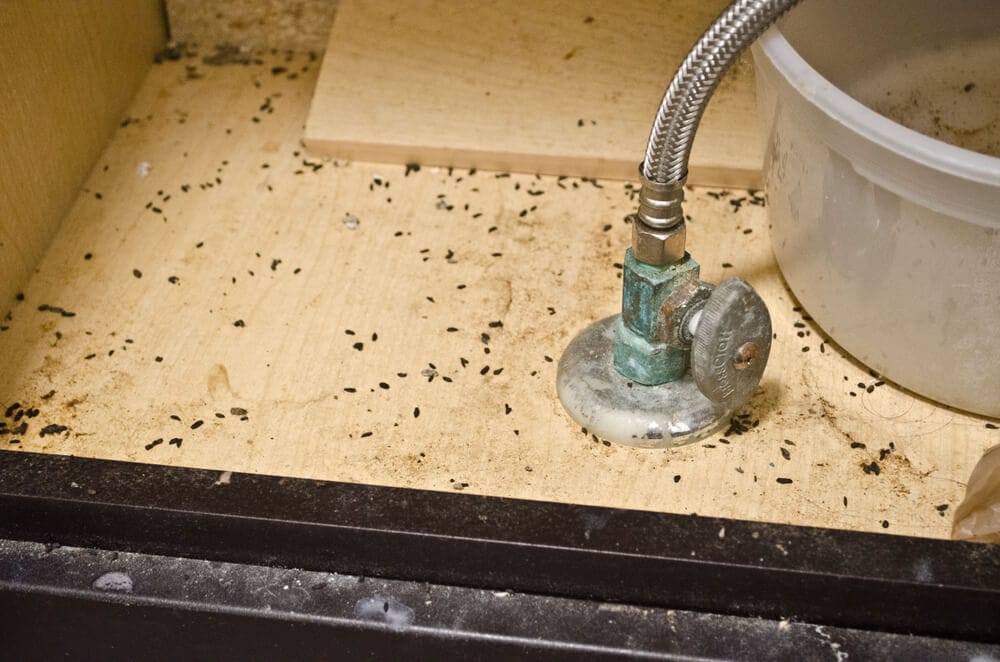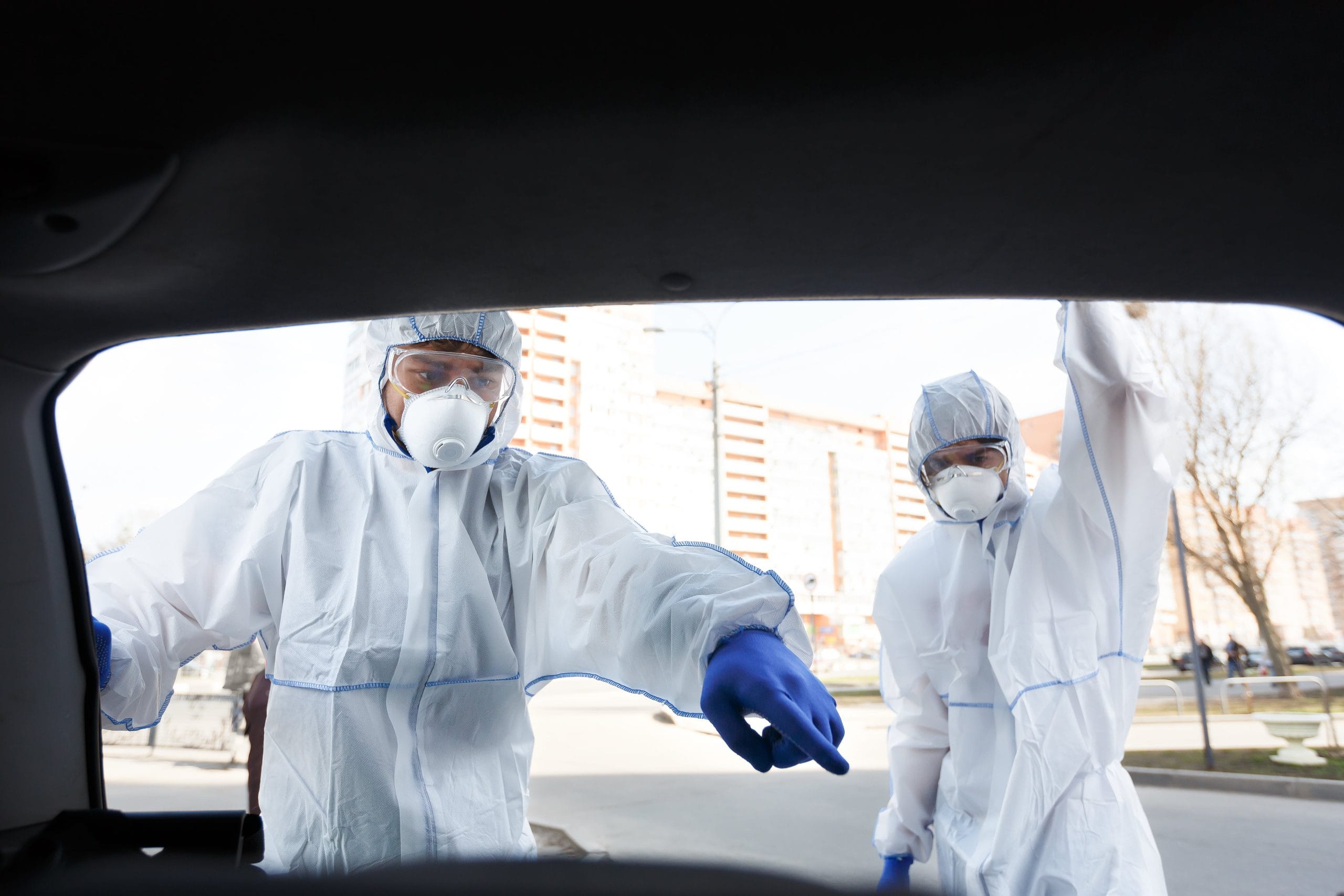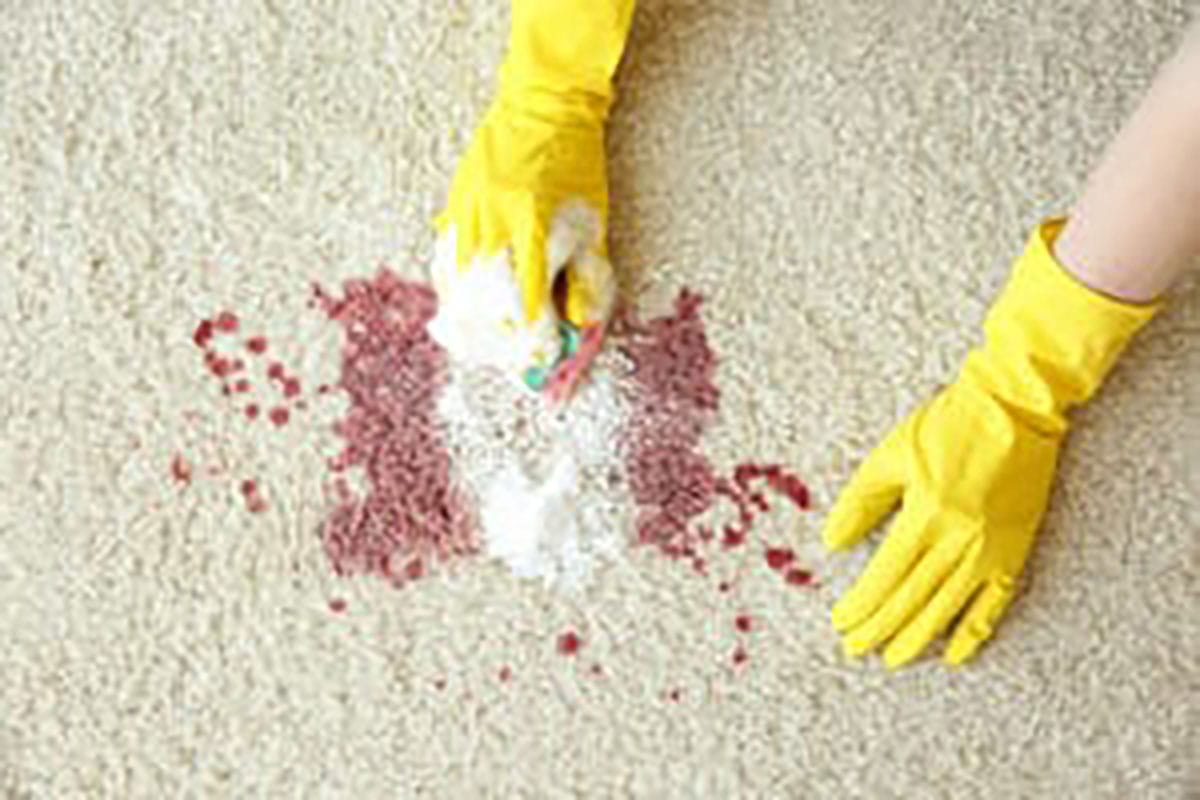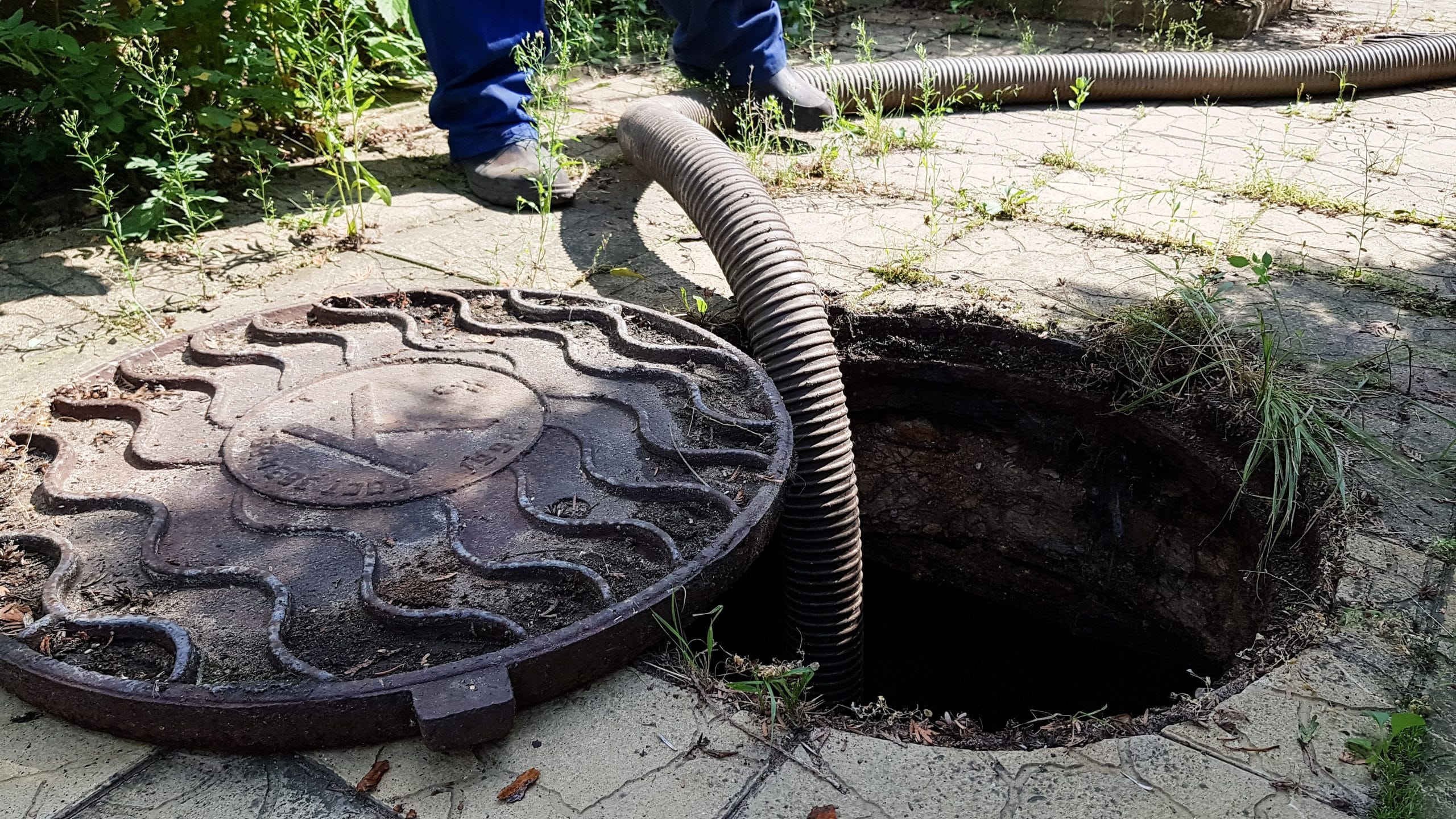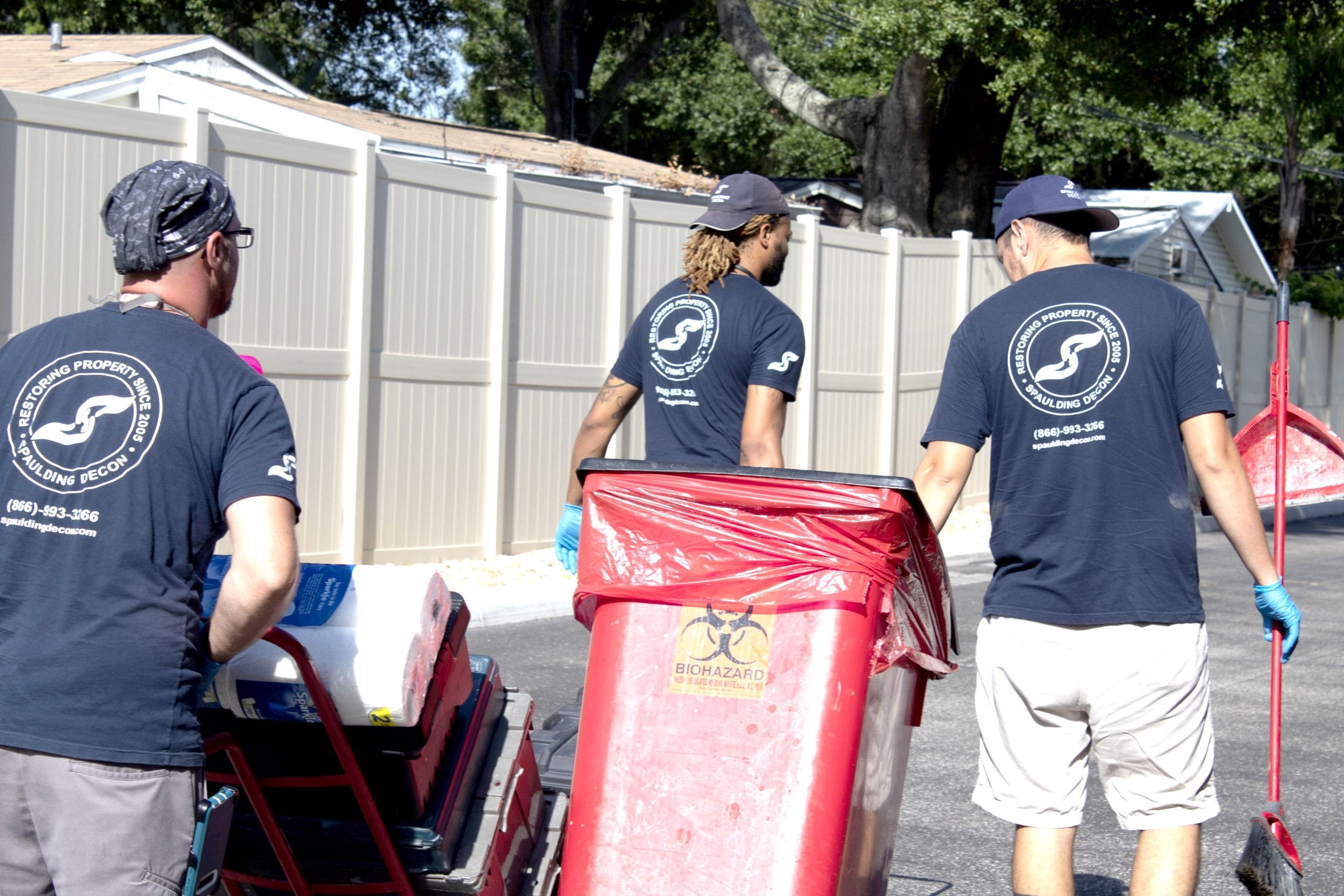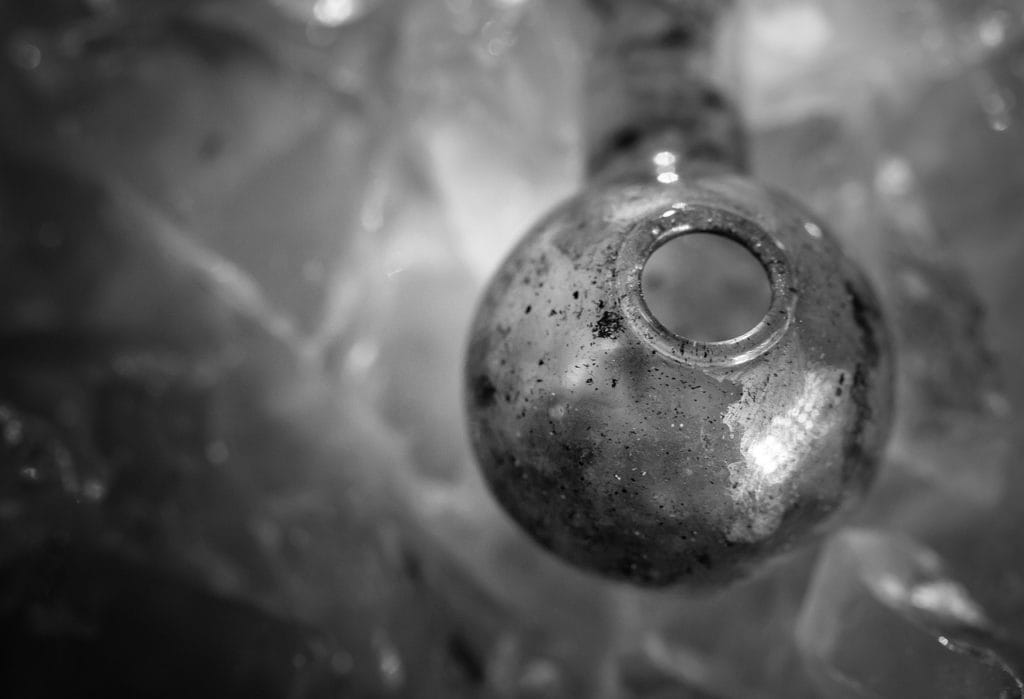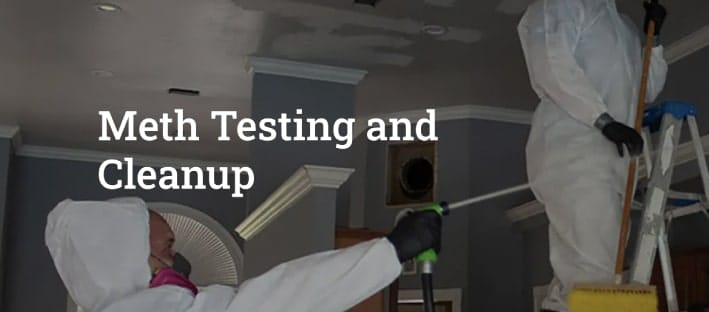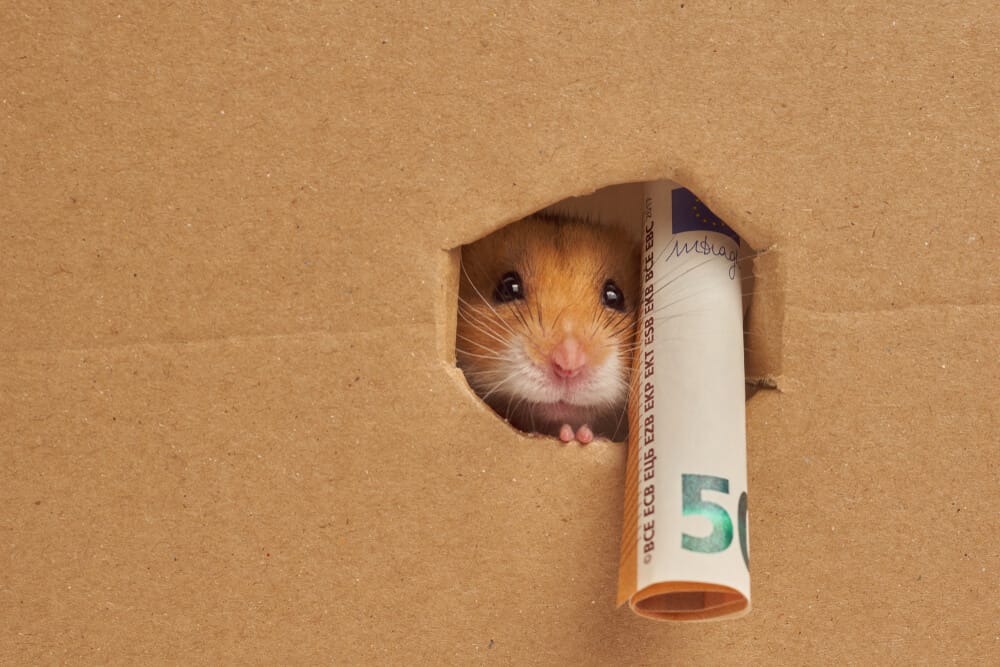Caregories
- Biohazard / Crime Scene
- Decontamination
- Drug lab cleanup
- Hoarding Cleanup
- Mold Removal
- News and Updates
- Rodent Infestations
- Tear Gas Cleanup
- Water Damage

What You Need to Know About Hoarding Cleanup Services
Compulsive hoarding affects 5 to 14 million people in the US and is described as an excessive accumulation of items and the refusal to get rid of them. Hoarding cleanup services are available for those who need help with de-cluttering their homes or the homes of loved ones. Professional cleaners are trained to safely and…

Effects of Suicide on Family: What Happens After?
Suicide can have a devastating impact on the family members of the deceased. The police are not responsible for the cleanup of the scene, and it is recommended to hire a professional cleanup crew due to the specialized chemicals and cleaning solutions they use, as well as their training and experience. Personal belongings of the…

Does Insurance Cover Biohazard Cleanup?
Biohazard cleanup services are necessary in situations where violent crimes, suicides, drug labs, hoarding, or accidental deaths have occurred. Attempting to clean these scenes yourself can be extremely dangerous and should be left to professional biohazard and remediation companies. Most major homeowners, business, or auto insurance policies cover the costs of crime cleanup or remediation…

Real Health Risks Posed By Mice and Rat Infestations
Rodents, such as mice and rats, can carry and spread many diseases that are harmful to humans. One of the most dangerous is Hantavirus, a group of viruses carried by rodents that can cause severe respiratory illness. The specific disease associated with Hantavirus in North and South America is Hantavirus Pulmonary Syndrome (HPS). This illness…

Discreet Hoarding Cleanup Services
Hoarding is a psychological condition that leads people to collect goods, both useful and useless. Hoarders are often protective of their collection and may resist cleaning efforts. Clean up companies must develop discreet and tactful services to handle hoarding clean up. Cleaning companies use various tactics to motivate hoarders to agree to a clean up,…

Differences Between Hoarding and Clutter Cleanup
Hoarding cleanup involves removing excessive household or personal goods that are no longer needed. Clutter cleanup is a specific form of cleaning that involves the removal of unnecessary goods that people may feel attached to. Both types of cleanup require experienced and trained professionals to handle the sensitive and complicated process. Hoarding cleanup involves specific…

The Dangers of Fentanyl Cleanup & Why You Need to Hire a Professional
Fentanyl contamination can be extremely dangerous and requires specialized gear and experience to handle properly. Fentanyl is difficult to detect and can be transdermal, making it easy to accidentally inhale or come into contact with. Hiring a professional cleanup team is recommended for safety reasons, as they have the necessary gear and training to handle…

Crime Scene Cleaning Business: All You Need to Know
Crime scene cleaning is a demanding and specialized industry that requires compassion, education and training, meticulous attention to detail, integrity and trust, and flexible working hours. Crime scene cleanup certification may be required in some states before obtaining a license. Protective gear, such as biohazard suits, gloves, masks, and respirators, is essential when cleaning up…

How Much Does Crime Scene Cleanup Cost?
Crime scene cleanups can cost more than standard restoration cleanups after a flood or fire, but most homeowner insurance policies should cover the majority of the expenses. The cost of a crime scene cleanup depends on several factors, including the number of rooms affected, type of flooring, sub-flooring, drywall, odor removal, air treatment, and more.…

Crime Scene Cleaning Training – What It’s All About
Crime scene cleaning is a unique career that involves cleaning up bodily fluids and other biohazards after a crime scene has been investigated and released by authorities. While most people associate crime scene cleaning with major crime scenes, the majority of cleanups are the result of unattended natural deaths or suicides. Many professionals in this…

Cleaning Up After a Death
Cleaning up after death can be a biohazardous and expensive process, but it is often covered by homeowners’ insurance policies. Costs can include biohazard disposal, disinfectants, tyvek suits, odor remediation equipment, and demolition equipment. Hiring a professional death scene cleanup company is recommended to properly assess and clean the area, and ensure proper biohazard disposal.…

How to Clean up After a Mouse Infestation
Mouse infestations can pose serious health hazards as rodents are carriers of diseases. It’s important to clean up mouse droppings and residue to prevent the spread of these diseases. Proper protection including gloves, a respirator, and protective goggles should be worn during cleanup. Bleach and water can be used to disinfect the area. Insurance may…

The Importance of Proper Blood Spill Cleanup, Explained
Blood-borne pathogens are infectious microorganisms carried in human blood, and certain body fluids also contain blood and disease-causing bacteria or viruses. Examples of blood-borne illnesses include hepatitis B, hepatitis C, and HIV, which represent the highest exposure risk. Blood spills can transmit disease if they remain on a surface, and the risk lasts even after…

Blood Cleanup in Hotels
Hotels see hundreds of people each year, making them a risk for accidents and biohazards. Homicides, suicides, and unattended deaths require professional decontamination, as blood is a biohazard that can carry pathogens and spread disease. Professional crime scene cleanup technicians have special bloodborne pathogens training and equipment to properly and safely clean up blood in…

Blood Cleanup: Can My Employer Make Me Clean That?
Employers cannot ask employees to clean up blood spills without first providing proper blood cleanup training and equipment. Blood contains dangerous pathogens, and employers are required by OSHA to provide a safe and healthy working environment. The OSHA Bloodborne Pathogen Standard outlines guidelines for protecting workers from bloodborne pathogen-related health hazards, including the establishment of…

Black Water and Sewage Leaks: Why Are They Dangerous?
Black water refers to water contaminated by hazardous materials such as human waste or soil, which can pose serious health risks and damage to property. Sewage leaks can release toxic gases, dangerous microorganisms, and chemicals that can corrode pipes and lead to mold growth. Exposure to black water can transmit illnesses like E-coli and campylobacteriosis,…

Biohazard Cleaning Pricing
Biohazard remediation services involve cleaning up blood or bodily fluids that have contaminated an area, including crime scene cleanup, blood cleanup, and general biohazardous material cleanup. Factors that affect pricing and the extent of cleaning required include the nature of the incident, location, and how long the scene has been contaminated. Homeowners insurance may cover…

Better Air Quality, Better Health When it Comes to In Home Meth Residue
Methamphetamine residue left behind by previous occupants in a home can be extremely hazardous to the health of those who move in afterward. Volatile organic compounds, such as lead, mercury, iodine, and lithium, accumulate in the air, penetrate every surface, and even soak into the wooden frame of a house. Exposure to this residual contamination…

So You Want to Be a Crime Scene Cleaner?
Crime scene cleaners are in demand and require specific skills, qualifications, and training to properly clean and disinfect crime scenes, including those involving blood, guts, and other bodily fluids. The job involves heavy physical labor, handling blood and waste, emotional toll, and irregular hours. Crime scene cleaners need to earn specific certifications and additional training,…

Basic Tips for Cleaning Meth Lab
A meth lab is a place where people construct illegal drugs. Meth lab cleanup is a risky and dangerous process that requires professionally trained and skilled cleaners. The steps involved in meth lab cleanup include surveying the area thoroughly, designing a proper plan, ventilating the area completely, managing the safety of the cleaners, collecting equipment…

Animal Hoarding: Laws, Facts and Psychology behind It
Animal hoarding is a compulsive behavior where individuals acquire and keep an excessive number of animals without providing adequate care, nutrition, and shelter. Animal hoarding is a complex disorder with elements of obsessive-compulsive disorder, personality disorder, paranoia, delusional thinking, attachment disorders, and depression. Anyone can become an animal hoarder, regardless of age or socio-economic background.…


